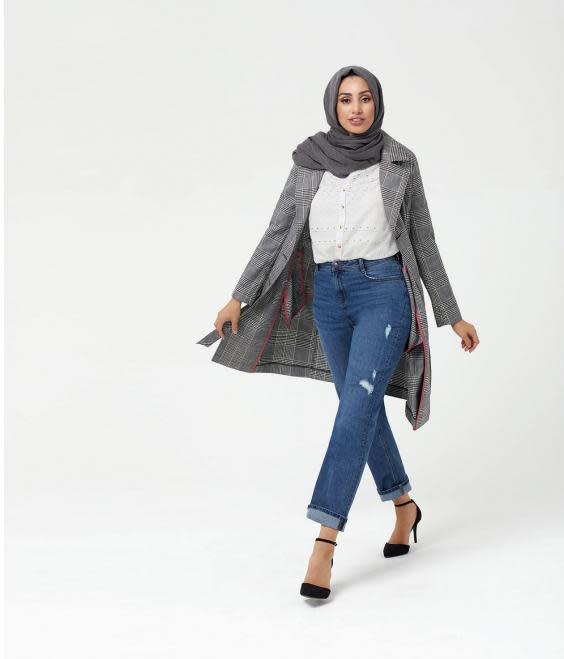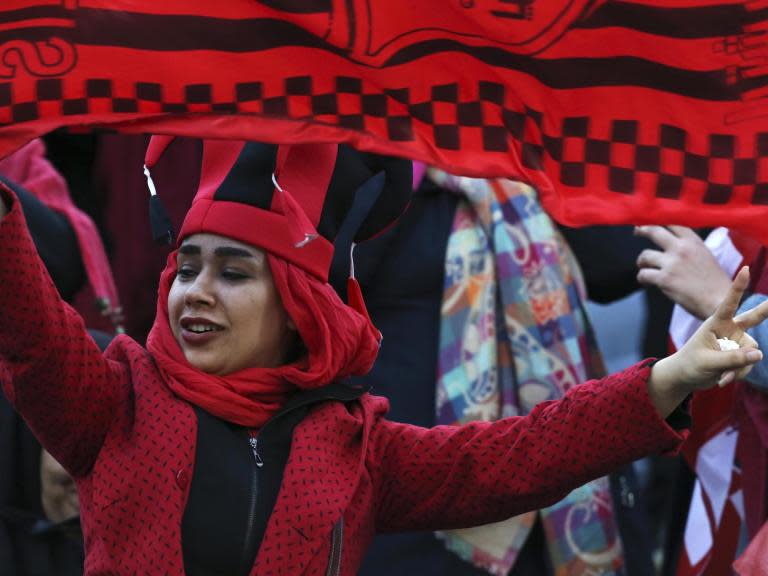How women from Islamic republics fight gender inequality all over the world
The world is constantly reassessing women’s place in society: their reproductive rights, workplace equality, safety on the streets, education. We talk about liberation, from the patriarchy, from stigma and from religion; some people believe that the world would be a better place without Islam in particular. We in the west are often on the receiving end of reports that the lives of women in Islamic republics are endangered, restricted and alien to what we know.
But having spoken to women on the other side of the veil, I discovered why freedom of religion can often be more empowering than freedom from it.
In February this year, Iran celebrated the 40th anniversary of their Islamic Revolution, a time when many stayed and many fled. Families were divided, lost and separated indefinitely.
Shahrzad, 65, left Tehran in 1983: “My husband and I were studying in Tehran and moved to Germany to continue, but always intended to return.”
The revolution began while they were away. Shahrzad returned to Iran in 1980 where she saw change amongst her female friends and family; their hair was covered and they were without makeup. Despite this shock, she was assured that “women were able to keep their jobs”. She told me that “even now you see women in elected positions and in governmental roles”. Talking to Shahrzad, I realised that while Iranian lifestyle may be different, the experience of work is not unlike the successes and trials faced by western women.
Pakistan has been an Islamic republic since its independence within the Commonwealth in 1947. A, 24, currently lives in the UK. She has lived in Dubai, Malaysia and Egypt but will always call Pakistan home. Pakistani culture is family-centred, meaning there was no question over A’s return to Pakistan to get married. In order to embrace her British-Pakistani husband’s culture, they also had a reception in the UK. There is an assumption that Pakistani families expect newly married women to stop working and have children.
“This mentality is rapidly changing in Pakistan.” A told me that she is a management consultant in Canary Wharf, a job that her family are very proud of. I admire her wish to return to use her experience and education, and to be part of her home country “reaching its true potential”.
The Gambia was made an Islamic republic in 2015 under president Yahya Jammeh. This title was recently revoked, and locals are experiencing a new democracy.
Marie, 42, now living in the UK, found this time uncomfortable for her Christian family. “Islamic law is what Muslims believe” she said, implying a differentiation from Gambian national ideals. Nine per cent of Gambians are Christian, meaning that inter-religious cohabitation is common. “Gambians are tolerant, supportive and respectful, of each other and anyone who visits.” she said, noting that “the hope of the future” is a popular phrase describing young, educated, Gambian women.

“We just need to be given a chance”, continued Marie. And I see signs that this is becoming a reality. The number of female medical students is relatively high and a significant part of the national stance against FGM, meaning that a safe and secure future for many Gambian girls is a real possibility.
Over 90 per cent of Libyans are Muslim, and before the revolution, religiously-motivated crimes were low. Although Zahra was born in a British seaside town, her Libyan heritage has shaped her relationship with the world. “Everybody who can afford it leaves Libya”, she said. Government cuts have created a gulf in society. I asked Zahra how she felt as a young Muslim woman in the UK. “I have learnt that I need to work 10 times as hard to achieve and to ‘prove myself’.”
An influencer, model, designer and blogger, Zahra’s Instagram following see her travelling the world; from Dubai Fashion Week to climbing Everest for charity. “When I travel I am often questioned about my intentions or singled out to be searched.”
Despite these challenges, for me, Zahra is a symbol of change. She has recently modelled for George at Asda and Liberty London. British Muslim women are becoming more visible, she told me, and “I am very proud to be part of that change”.
This week, in the aftermath of the devastating terrorist attack on a mosque in New Zealand, five Birmingham mosques have been vandalised. Clearly, Britain and the rest of the west’s scepticism of Islam has grown considerably in recent years. Sharia (”the way” in Arabic), is interpreted in many ways around the world.
In some cases, it is used in undeniably oppressive ways, yet my conversations with these women demonstrate a more complex reality. It should go without saying, but women of Islamic republics are educated, hold positions of power, work and live modern lives. Freedom from religion is not necessarily the antidote to oppression. Instead, we should be encouraging the ways in which freedom of religion can overcome inequality. These women, like countless others we don’t always hear from, are helping along the growing understanding that not all women of Islamic republics are silent.

 Yahoo News
Yahoo News 

